 Understanding the principal causes of Employee Burnout is of paramount importance, particularly for individuals in leadership and prime positions. Identifying and resolving these factors is instrumental in fostering a more wholesome work environment:
Understanding the principal causes of Employee Burnout is of paramount importance, particularly for individuals in leadership and prime positions. Identifying and resolving these factors is instrumental in fostering a more wholesome work environment:
1. Workload: Juggling work responsibilities outside of traditional work hours, such as evenings and holidays, can significantly contribute to burnout and exhaustion.
It is essential for executives to prioritize self-care by ensuring they get sufficient sleep, engage in regular exercise, maintain a balanced diet, and manage stress effectively. Taking regular vacations and breaks throughout the day can also be highly beneficial. Self-care practices vary from person to person, ranging from spending time with loved ones to running errands or exercising. It is crucial to recognize the signs of exhaustion and prioritize self-awareness to maintain a healthy work-life balance. Setting boundaries, refraining from work-related discussions after hours, and engaging in hobbies are also important for achieving this balance. Proper rest and relaxation have been scientifically proven to enhance work performance, motivation, and enjoyment. However, with the rise in remote work, establishing boundaries between work and home can be challenging. Many are experiencing inadequate sleep, which significantly impacts their quality of life and productivity. If separating work and home spaces is not feasible, taking breaks outside the house or finding an alternative place to unwind, such as a coffee shop or gym, can be beneficial.
 2. Lack of Control: Managing conflicts, particularly when navigating the input of multiple supervisors, can create a sense of uncertainty and stress, impacting overall well-being.
2. Lack of Control: Managing conflicts, particularly when navigating the input of multiple supervisors, can create a sense of uncertainty and stress, impacting overall well-being.
Navigating conflicting demands and expectations from different supervisors can often lead to a sense of lack of control, generating uncertainty and stress that can have a significant impact on your overall well-being. Establishing a strong support system is crucial for mitigating the risk of burnout in executives, given the demanding nature of their roles. These positions often entail high levels of stress, immense responsibility, and feelings of isolation. Therefore, having a dedicated team that offers both emotional and practical support can greatly aid in navigating and mitigating these challenges. Lack of control could even derail one’s mental health and the quest to find a harmonious workspace can be totally lost. Your mind is your temple hence it is an added necessity to ensure you have a strong grip on day-to-day activities and this can play a major role, in helping you find sustained success in the workspace.
3. Insufficient Reward: The absence of acknowledgment and appreciation for one’s efforts and contributions can lead to demotivation and disengagement, exacerbating burnout.
When employees don’t feel recognized and rewarded for their hard work, they may start to think that their organization doesn’t value their efforts. This can make them less motivated and feel disconnected from the outcomes or rewards they receive. Employees who are not motivated are less likely to go the extra mile or take on additional responsibilities, which can ultimately impact productivity and team morale.
4. Community: The nature and quality of workplace relationships play a vital role in individual well-being, with supportive and positive connections contributing to a healthier work environment.
A strong support network can offer valuable emotional guidance by listening, showing empathy, and providing words of encouragement. Conversations with teammates who understand the challenges of work can be uplifting and motivating. “Relationships are among the most important in the entire company.” When facing high pressures in the workplace, having a team to support you with tasks and responsibilities can be incredibly reassuring.
5. Fairness: Being treated with respect and fairness is fundamental to fostering a positive and healthy work environment, and instances of unfair treatment can significantly impact overall well-being.
A. Building Fairness in the Workplace Establishing Clarity: It’s important to create and communicate clear policies to ensure fairness and address issues effectively.
B. Learning and Progress: Providing training on diversity, equity, and inclusion empowers employees to identify and address biases, fostering a more inclusive environment.
C. Seeking Input: Creating avenues for employees to share their concerns and feedback facilitates prompt resolution of fairness issues.
D. Leading by Example: When leaders demonstrate respect and fairness, it sets a positive tone for the entire organization.
Leaders should prioritize developing good connections with their staff based on trust, empathy, and mutual respect. Leaders may identify and resolve potential stressors by encouraging open communication lines and actively listening to employee feedback. To set a positive tone for the organization, leaders should also set a good example by displaying healthy work practices and prioritizing their health.
6. Conflict with Values and Accountability: When personal values are at odds with the demands and expectations of the workplace, individuals may experience substantial stress and inner conflict, contributing to burnout.
Accountability within the workplace plays a pivotal role in cultivating a high-performing team and fostering a positive organizational culture. It entails employees assuming responsibility for their actions, performance, and the outcomes of their work, rather than participating in a culture of assigning blame when errors occur.
A. Makes work better: When people know what they should do, they do a better job.
B. Helps teamwork: When everyone does their part, it helps the team to work together better.
C. Makes us learn: When we take responsibility, we learn from our mistakes and get better at our jobs.
D. Makes us care more: When we feel responsible, we want to do our best.

7. On and Off field events – How do team activities play a role in eliminating burnout?
Many organizations think that it is only important to work hard without any off-field events. That is not the case anymore, as off-field team engagements play a more vital role in one’s overall development and professional growth. A simple get-together or casual dinner event can act as a reward and a platform to understand the team dynamics better. It just doesn’t stop at dinners or formal events but giving employees the opportunity through team building and sporting activities can greatly enhance togetherness and spirit while keeping the burnout concerns in check. Such events even help the quietest ones to have a voice in a controlled comfortable environment and help those hidden talents take center stage.
To Summarize – Executive burnout is a significant challenge that many organizations face, but it can be addressed by understanding its causes and adopting proactive strategies. Recognizing the signs, setting boundaries, seeking professional support, and fostering a supportive culture are essential steps toward avoiding burnout and thriving in workplace roles. Organizations that prioritize leadership, staff well-being, benefit from engaged, resilient, and effective team players. Experiencing burnout doesn’t mean failure; it’s a signal to prioritize self-care and seek help. Recognizing and proactively managing these factors is instrumental in promoting a productive, content, and energized workforce.
Last but not the least, Senior executive must comprehend that burnout risks are severe for any organizational level employee and can lead to mental agonies. Senior executives must recognise burnout is a complex concern that go beyond professional stress thus leading to deterioration in mental health. They must grasp the different elements mentioned in this little article to combat burnout issues- such as job demands, organisational culture, interpersonal dynamics, and external pressures. Recognising the intricate interaction of these elements allows executives to get insight into the underlying causes of employee distress and design actions accordingly. They should recognise that burnout is frequently caused by systemic difficulties inside the organisation, rather than individual shortcomings. Leaders should encourage people to seek help and handle burnout proactively by cultivating an open communication and psychologically secure culture. Recognizing the significant influence that burnout has on employee morale, productivity, and retention, leaders must handle these difficulties with empathy, foresight, and strategic planning. Recognizing the varied nature of these issues and understanding their core causes allows leaders to develop focused solutions that build a workplace culture that values resilience, innovation, and employee well-being.

 Anilkumar’s career with the CSS Group began in 1997 when he became one of the earliest appointees at the company’s newly established Kochi office. Starting as an Accounts Executive, his diligence and skill quickly set him apart, leading to his promotion to Branch Manager within two years. During this period, the CSS Group expanded its footprint in southern India by opening branches in Tirupur and Tuticorin, reflecting its growing influence in the region.
Anilkumar’s career with the CSS Group began in 1997 when he became one of the earliest appointees at the company’s newly established Kochi office. Starting as an Accounts Executive, his diligence and skill quickly set him apart, leading to his promotion to Branch Manager within two years. During this period, the CSS Group expanded its footprint in southern India by opening branches in Tirupur and Tuticorin, reflecting its growing influence in the region. Anilkumar predicts substantial growth in the shipping and logistics industry over the next five to ten years, fuelled by the expansion of the global economy and the rise of e-commerce. The increased volume of intra-regional and cross-border trade is expected to drive demand for logistics services, presenting new growth prospects. Specifically, India, as a rapidly developing nation, is poised to experience significant advancements in this sector.
Anilkumar predicts substantial growth in the shipping and logistics industry over the next five to ten years, fuelled by the expansion of the global economy and the rise of e-commerce. The increased volume of intra-regional and cross-border trade is expected to drive demand for logistics services, presenting new growth prospects. Specifically, India, as a rapidly developing nation, is poised to experience significant advancements in this sector.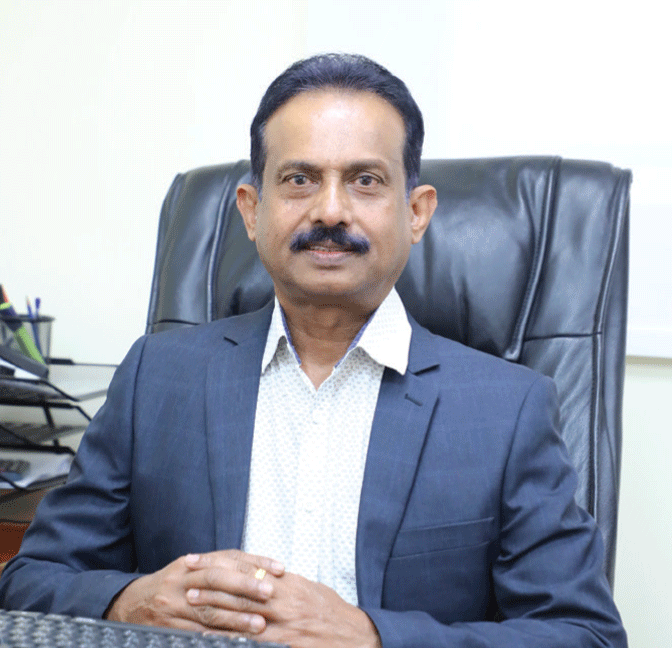 Baiju’s journey with CSS Group is one of remarkable dedication, spanning 25 years of service, teamwork, and personal growth. For Baiju, his time at the company is more than just a career; it has been an opportunity to build meaningful relationships, make a difference in the freight forwarding industry, and contribute to its expansion and success.
Baiju’s journey with CSS Group is one of remarkable dedication, spanning 25 years of service, teamwork, and personal growth. For Baiju, his time at the company is more than just a career; it has been an opportunity to build meaningful relationships, make a difference in the freight forwarding industry, and contribute to its expansion and success. Baiju sees this growth as a key factor in CSS Group’s continued success, believing that the company’s broader network will help it stay competitive in the ever-changing logistics landscape. Reflecting on his career, Baiju shares a moment of pride that highlights his proactive problem solving and teamwork.
Baiju sees this growth as a key factor in CSS Group’s continued success, believing that the company’s broader network will help it stay competitive in the ever-changing logistics landscape. Reflecting on his career, Baiju shares a moment of pride that highlights his proactive problem solving and teamwork. Latha’s career took a significant turn in 2006 when Consolidated Shipping Services India Pvt Ltd. was established, and she was appointed as Branch Manager of the Cochin Office. This role proved to be a pivotal point, enabling her to grow from a carrying and forwarding licensed professional with limited knowledge to a full-fledged managerial position. She credits the CSS management for their unwavering support, particularly during a time when customs filing transitioned to a digital platform. She received tremendous support from the management of CSS when customs filing was shifted to a digital platform for the first time, recalls Latha. Her ability to lead her team through such technological advancements at a time when computerization was considered a major revolution, especially in Government Offices, showcased her adaptability and leadership skills.
Latha’s career took a significant turn in 2006 when Consolidated Shipping Services India Pvt Ltd. was established, and she was appointed as Branch Manager of the Cochin Office. This role proved to be a pivotal point, enabling her to grow from a carrying and forwarding licensed professional with limited knowledge to a full-fledged managerial position. She credits the CSS management for their unwavering support, particularly during a time when customs filing transitioned to a digital platform. She received tremendous support from the management of CSS when customs filing was shifted to a digital platform for the first time, recalls Latha. Her ability to lead her team through such technological advancements at a time when computerization was considered a major revolution, especially in Government Offices, showcased her adaptability and leadership skills. Reflecting on her 28-year journey, Latha acknowledges the ups and downs, the challenges, and the moments of growth. She takes pride in how her career evolved alongside her personal development, and her sense of accomplishment is clear as she looks back on the path she has travelled. When she looks back, she is contended. It is this spirit of contentment that keeps her motivated today. She takes pride in her ability to balance personal and professional life effectively.
Reflecting on her 28-year journey, Latha acknowledges the ups and downs, the challenges, and the moments of growth. She takes pride in how her career evolved alongside her personal development, and her sense of accomplishment is clear as she looks back on the path she has travelled. When she looks back, she is contended. It is this spirit of contentment that keeps her motivated today. She takes pride in her ability to balance personal and professional life effectively. In the fast-paced world of logistics, where space constraints and tight deadlines are the norm, CSS Global Forwarding India Pvt Ltd has once again demonstrated its commitment to excellence. By assisting an esteemed client with last-minute logistics planning, we have proven our ability to deliver exceptional service and expertise, even in the most challenging circumstances.
In the fast-paced world of logistics, where space constraints and tight deadlines are the norm, CSS Global Forwarding India Pvt Ltd has once again demonstrated its commitment to excellence. By assisting an esteemed client with last-minute logistics planning, we have proven our ability to deliver exceptional service and expertise, even in the most challenging circumstances.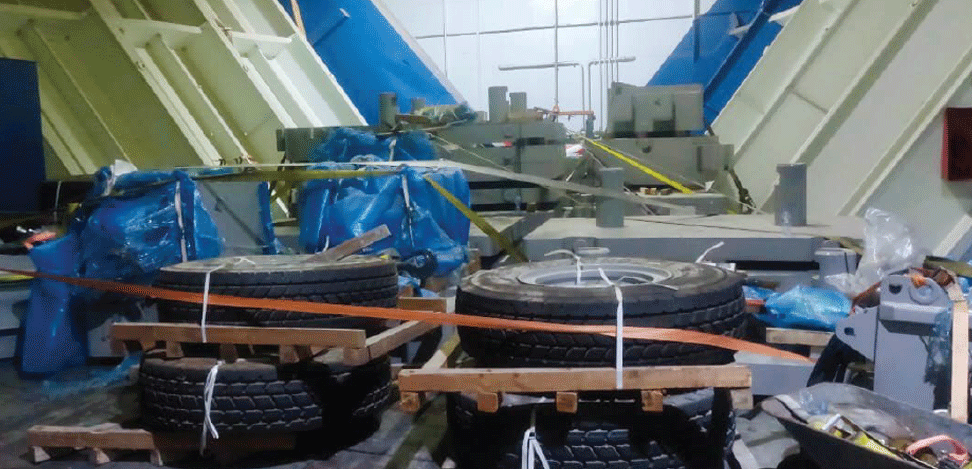 Our team employed strategic negotiations with vessel owners and secured space, thanks to the invaluable support of these owners. This achievement is a tribute to our team’s expertise and teamwork, proving that even in a competitive market, CSS Global Forwarding can overcome obstacles and deliver results.
Our team employed strategic negotiations with vessel owners and secured space, thanks to the invaluable support of these owners. This achievement is a tribute to our team’s expertise and teamwork, proving that even in a competitive market, CSS Global Forwarding can overcome obstacles and deliver results.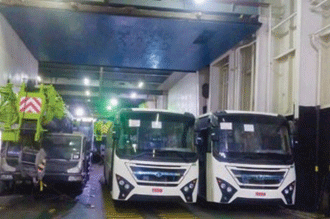 At CSS Global Forwarding, we continuously strive to enhance our services and capabilities to meet the evolving needs of our clients. Our recent achievement showcases our dedication to providing innovative solutions and exceptional service in the logistics industry.
At CSS Global Forwarding, we continuously strive to enhance our services and capabilities to meet the evolving needs of our clients. Our recent achievement showcases our dedication to providing innovative solutions and exceptional service in the logistics industry.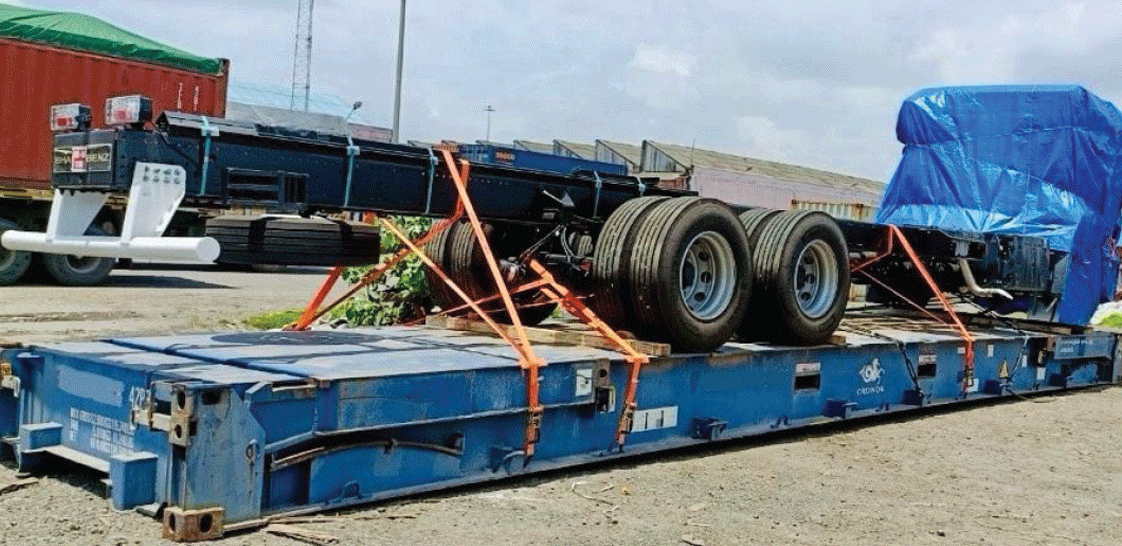 In today’s logistics landscape, securing space for shipments can be a daunting task, particularly when deadlines are tight, and demand is high. Our team at CSS Global Forwarding rose to the occasion by securing a flatbed transport with dimensions of 12.05 meters x 2.40 meters x 3.95 meters at the last minute. This achievement surprised and delighted our client, reinforcing our reputation for delivering exceptional service under pressure.
In today’s logistics landscape, securing space for shipments can be a daunting task, particularly when deadlines are tight, and demand is high. Our team at CSS Global Forwarding rose to the occasion by securing a flatbed transport with dimensions of 12.05 meters x 2.40 meters x 3.95 meters at the last minute. This achievement surprised and delighted our client, reinforcing our reputation for delivering exceptional service under pressure.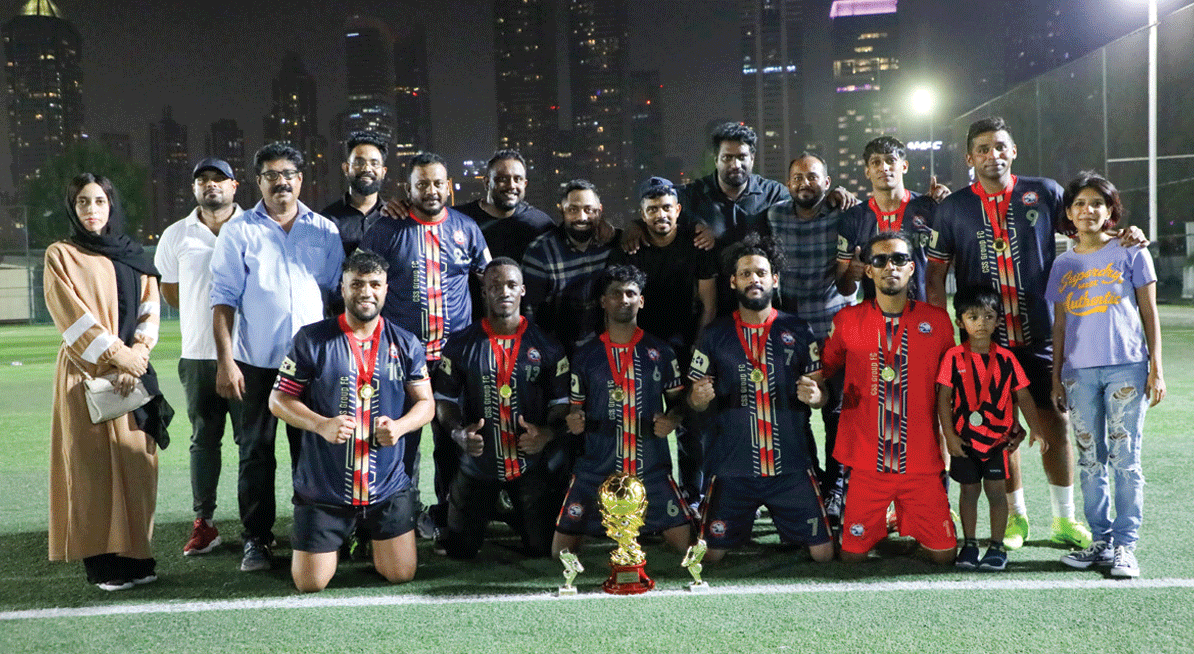
 The tournament showcased exceptional skills and sportsmanship, featuring teams from various CSS divisions. CSS Elogix emerged as the champion, securing the title for the second consecutive year. Their consistent performance and remarkable teamwork once again proved why they are a force to be reckoned with in the CSS sports community.
The tournament showcased exceptional skills and sportsmanship, featuring teams from various CSS divisions. CSS Elogix emerged as the champion, securing the title for the second consecutive year. Their consistent performance and remarkable teamwork once again proved why they are a force to be reckoned with in the CSS sports community. The tournament not only fostered a spirit of camaraderie and healthy rivalry but also offered participants and spectators an opportunity to come together and enjoy a day filled with football excitement. With CSS Elogix successfully defending their title, other teams will surely look to challenge them next year, making the CSS Football Tournament a much-anticipated annual event.
The tournament not only fostered a spirit of camaraderie and healthy rivalry but also offered participants and spectators an opportunity to come together and enjoy a day filled with football excitement. With CSS Elogix successfully defending their title, other teams will surely look to challenge them next year, making the CSS Football Tournament a much-anticipated annual event.
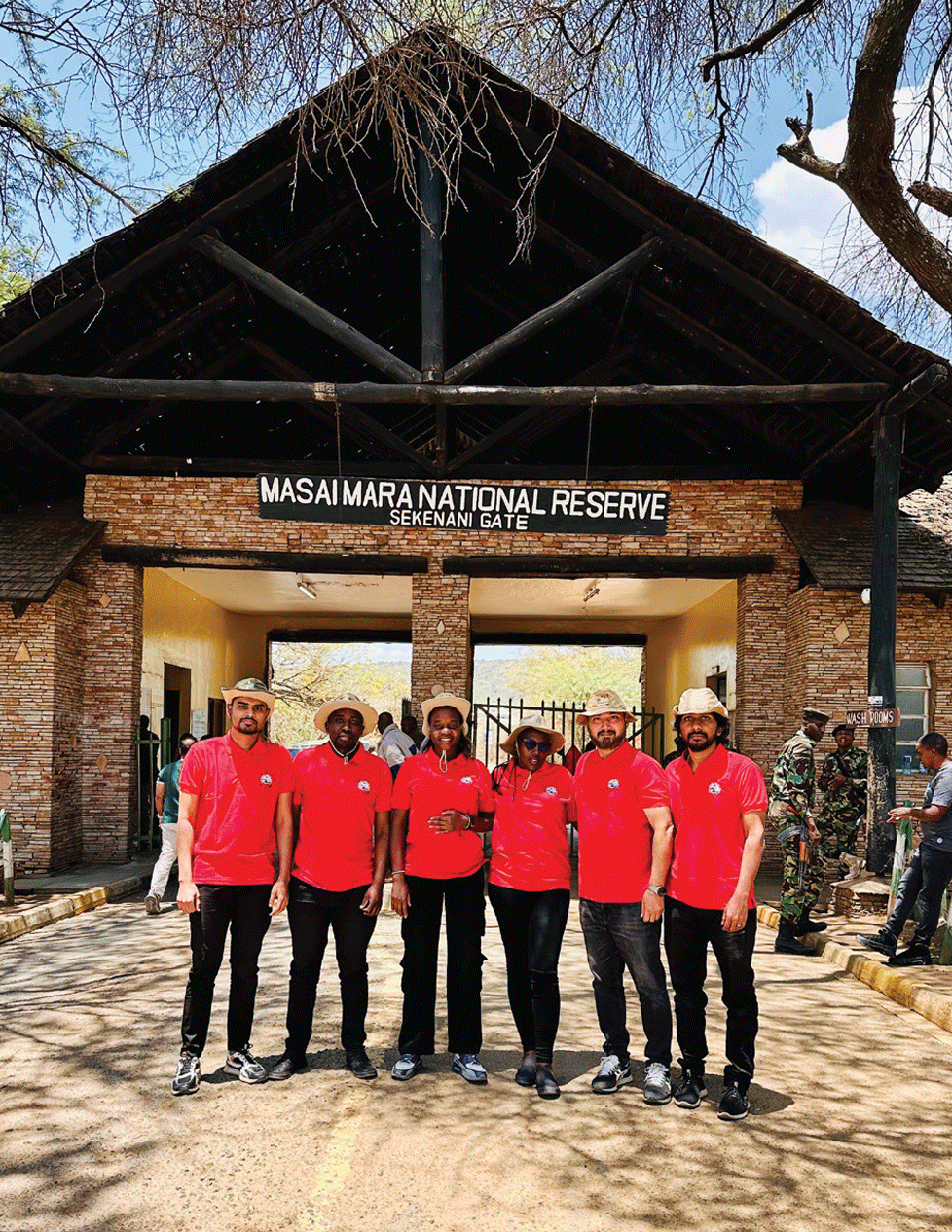 One of the highlights of our trip was our visit to the Masai village where we meet with the Masai Mara tribespeople who welcomed us into their village with open arms. We were able to learn about their rich culture and traditions, and we were touched by their warmth and hospitality. They invited us into their homes and showed us how they make fire from just 2 types of sticks. It was a truly humbling experience that reminded us of the importance of connecting with people from different backgrounds and learning from their unique perspectives.
One of the highlights of our trip was our visit to the Masai village where we meet with the Masai Mara tribespeople who welcomed us into their village with open arms. We were able to learn about their rich culture and traditions, and we were touched by their warmth and hospitality. They invited us into their homes and showed us how they make fire from just 2 types of sticks. It was a truly humbling experience that reminded us of the importance of connecting with people from different backgrounds and learning from their unique perspectives. Early next morning we proceeded to the Masai Mara National Reserve, we were greeted with stunning views of the vast savannah and rolling hills that make up this iconic landscape. As we embarked on our safari adventure, we were immediately struck by the abundance of wildlife that calls this place home. From elephants and giraffes to lions, wilder beast and zebras, we were able to witness these magnificent creatures in their natural habitat, and it was a sight to behold.
Early next morning we proceeded to the Masai Mara National Reserve, we were greeted with stunning views of the vast savannah and rolling hills that make up this iconic landscape. As we embarked on our safari adventure, we were immediately struck by the abundance of wildlife that calls this place home. From elephants and giraffes to lions, wilder beast and zebras, we were able to witness these magnificent creatures in their natural habitat, and it was a sight to behold.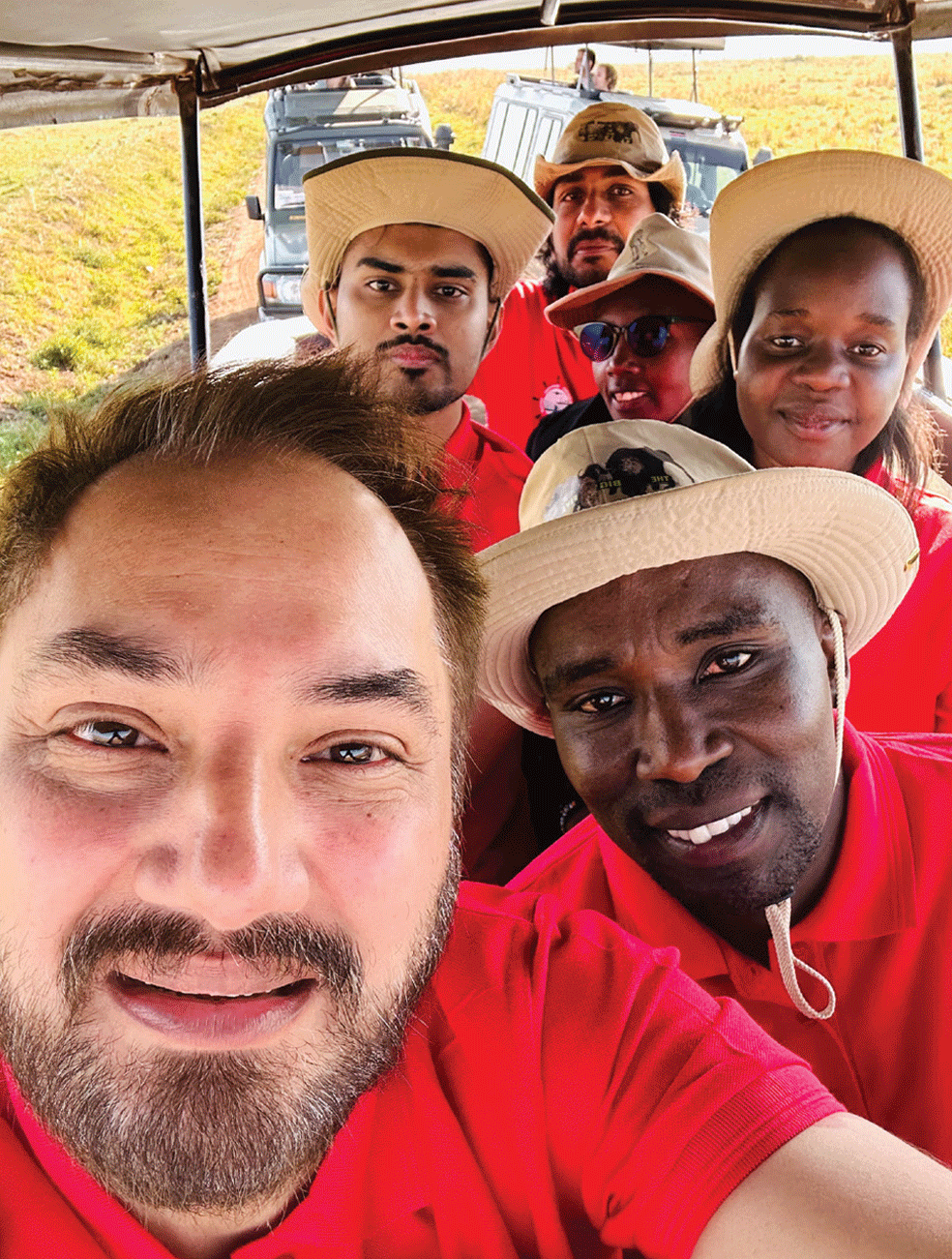 As we said goodbye to the Masai Mara and headed back to the hustle and bustle of city life, we couldn’t help but feel grateful for the incredible experience we had shared. The memories we made and the bonds we formed will always hold a special place in our hearts. It was a truly unforgettable experience that brought our team closer together and allowed us to connect with nature in a way that we never thought possible, and we can’t wait to return to this magical place as a TEAM again someday.
As we said goodbye to the Masai Mara and headed back to the hustle and bustle of city life, we couldn’t help but feel grateful for the incredible experience we had shared. The memories we made and the bonds we formed will always hold a special place in our hearts. It was a truly unforgettable experience that brought our team closer together and allowed us to connect with nature in a way that we never thought possible, and we can’t wait to return to this magical place as a TEAM again someday. The logistics industry is vital to global trade and is responsible for moving goods efficiently across borders. However, it contributes significantly to environmental degradation, particularly through emissions, resource depletion, and waste. As the world shifts towards sustainability, the logistics sector is being called upon to adopt eco-friendly practices. This article explores various eco solutions currently shaping the future of the logistics industry.
The logistics industry is vital to global trade and is responsible for moving goods efficiently across borders. However, it contributes significantly to environmental degradation, particularly through emissions, resource depletion, and waste. As the world shifts towards sustainability, the logistics sector is being called upon to adopt eco-friendly practices. This article explores various eco solutions currently shaping the future of the logistics industry. The rise of electric vehicles (EVs) in logistics is a key development aimed at reducing carbon emissions. These vehicles are powered by renewable energy sources like solar and wind, producing zero tailpipe emissions. Major logistics companies like UPS, FedEx, and DHL have already invested in electric delivery vans and trucks.Apart from EVs, the industry is exploring alternative fuels such as:
The rise of electric vehicles (EVs) in logistics is a key development aimed at reducing carbon emissions. These vehicles are powered by renewable energy sources like solar and wind, producing zero tailpipe emissions. Major logistics companies like UPS, FedEx, and DHL have already invested in electric delivery vans and trucks.Apart from EVs, the industry is exploring alternative fuels such as: Warehouses, being energy-intensive facilities, offer multiple opportunities for sustainability. Green warehousing focuses on reducing energy consumption, minimizing waste, and utilizing renewable energy sources. Key solutions include:
Warehouses, being energy-intensive facilities, offer multiple opportunities for sustainability. Green warehousing focuses on reducing energy consumption, minimizing waste, and utilizing renewable energy sources. Key solutions include: Sea freight is one of the most environmentally efficient means of transportation, but it still contributes to pollution. The following eco-solutions are helping to reduce the environmental impact of shipping:
Sea freight is one of the most environmentally efficient means of transportation, but it still contributes to pollution. The following eco-solutions are helping to reduce the environmental impact of shipping: Technology plays a crucial role in driving sustainability in logistics. From cloud computing to blockchain, IT solutions are helping logistics firms track, optimize, and reduce their environmental footprint.
Technology plays a crucial role in driving sustainability in logistics. From cloud computing to blockchain, IT solutions are helping logistics firms track, optimize, and reduce their environmental footprint.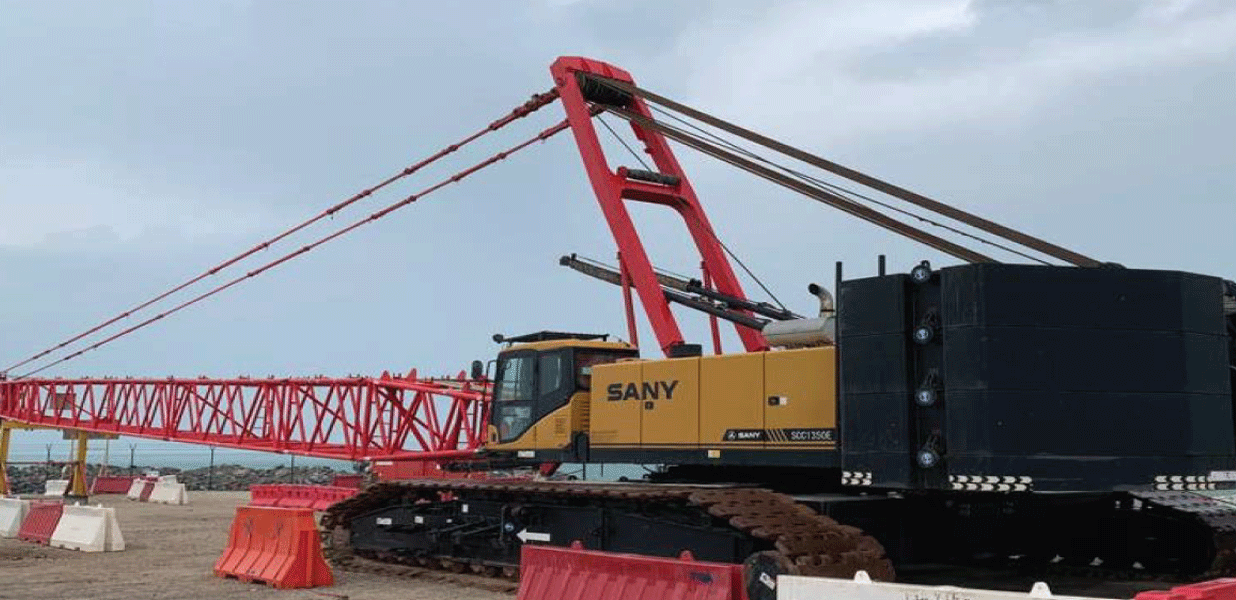 The shipping industry in Kuwait is becoming increasingly competitive, with new players entering the market and existing companies expanding their services. This has led to pricing pressures and the need for shipping companies to differentiate themselves through value-added services, technology, and customer experience.
The shipping industry in Kuwait is becoming increasingly competitive, with new players entering the market and existing companies expanding their services. This has led to pricing pressures and the need for shipping companies to differentiate themselves through value-added services, technology, and customer experience.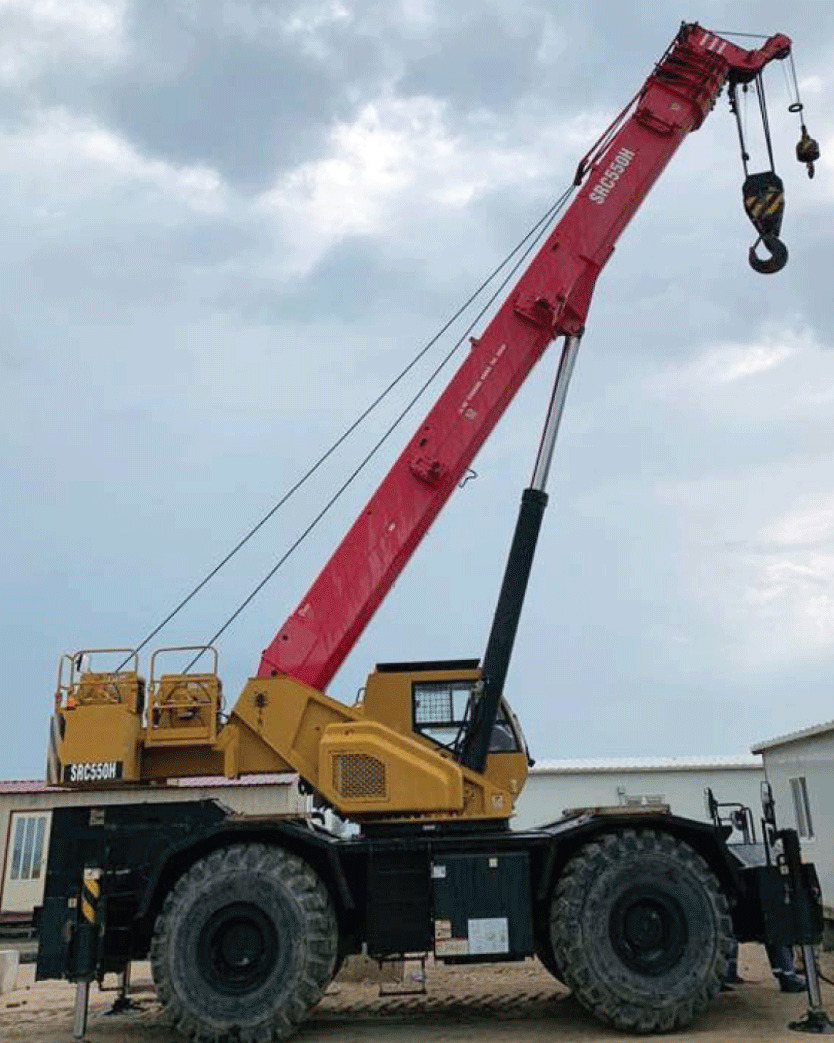 E-commerce has started to see growth in Kuwait, which in turn is driving increased demand for shipping services, particularly for last-mile delivery and fulfillment. Another area where CSS has been ahead of the rest with the launch of CSS E-Logix in 2021 and is quickly becoming a brand to reckon with.
E-commerce has started to see growth in Kuwait, which in turn is driving increased demand for shipping services, particularly for last-mile delivery and fulfillment. Another area where CSS has been ahead of the rest with the launch of CSS E-Logix in 2021 and is quickly becoming a brand to reckon with.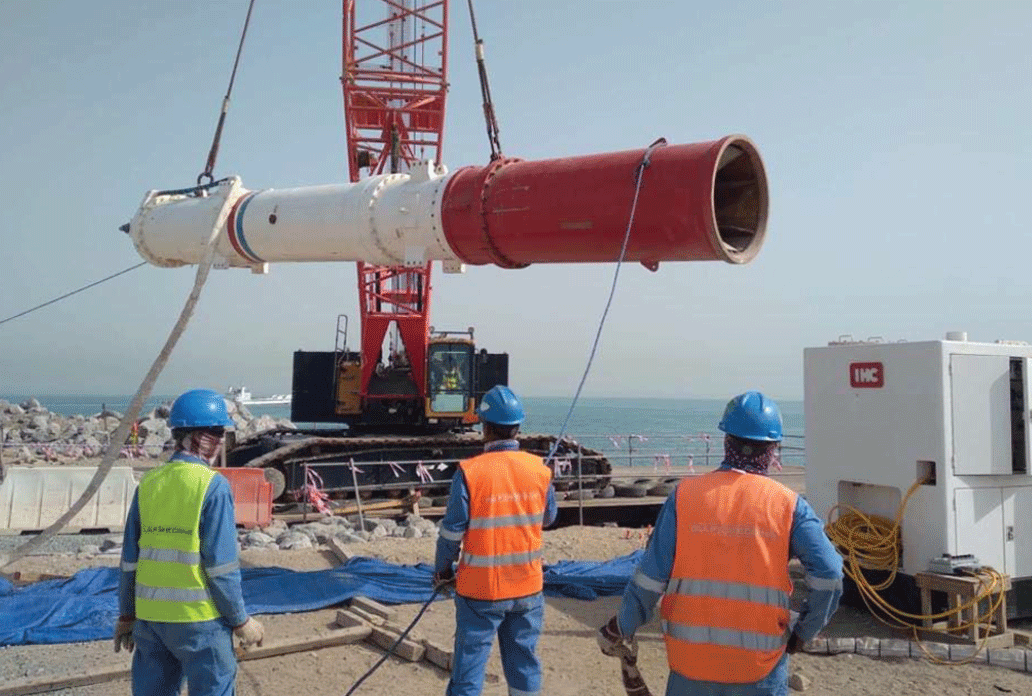
 Since joining CSS Group on October 21, 2008, Ranjith Haridas has experienced a dynamic and rewarding career. He began as a Sales Coordinator, a role that involved learning the fundamentals of LCL consolidation, supporting the sales team, and managing customer inquiries. This early experience provided a strong foundation in logistics and customer relationship management. After nearly two years, Ranjith was promoted to Sales Executive, where he took on direct client relationships and worked toward expanding the company’s sales network.
Since joining CSS Group on October 21, 2008, Ranjith Haridas has experienced a dynamic and rewarding career. He began as a Sales Coordinator, a role that involved learning the fundamentals of LCL consolidation, supporting the sales team, and managing customer inquiries. This early experience provided a strong foundation in logistics and customer relationship management. After nearly two years, Ranjith was promoted to Sales Executive, where he took on direct client relationships and worked toward expanding the company’s sales network.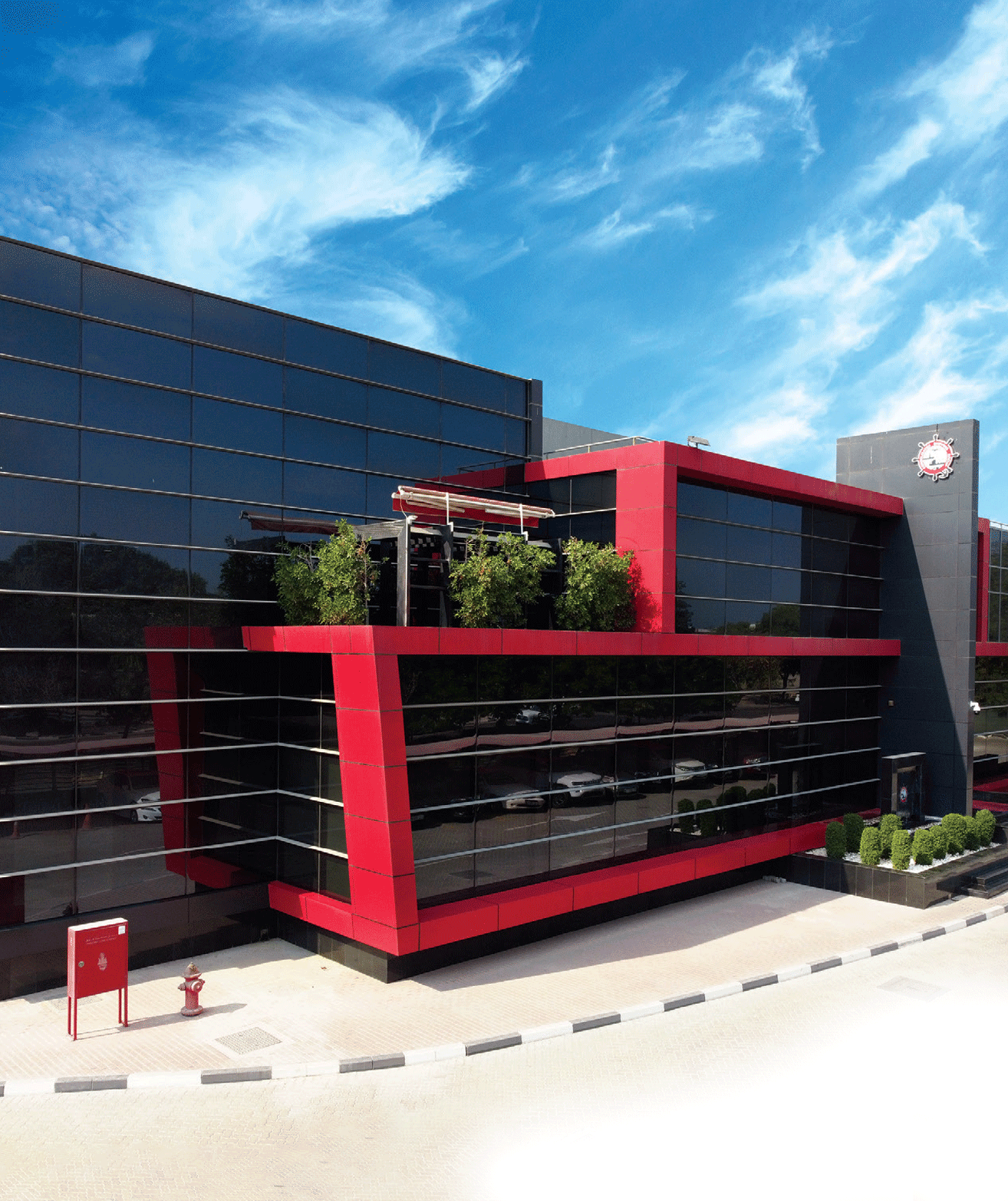 Today, as Sales Manager, Ranjith oversees the LCL sales team. In this role, he develops sales strategies, guides his team toward success, and ensures that business objectives are met. Each step in his journey has shaped his leadership style and business acumen.
Today, as Sales Manager, Ranjith oversees the LCL sales team. In this role, he develops sales strategies, guides his team toward success, and ensures that business objectives are met. Each step in his journey has shaped his leadership style and business acumen.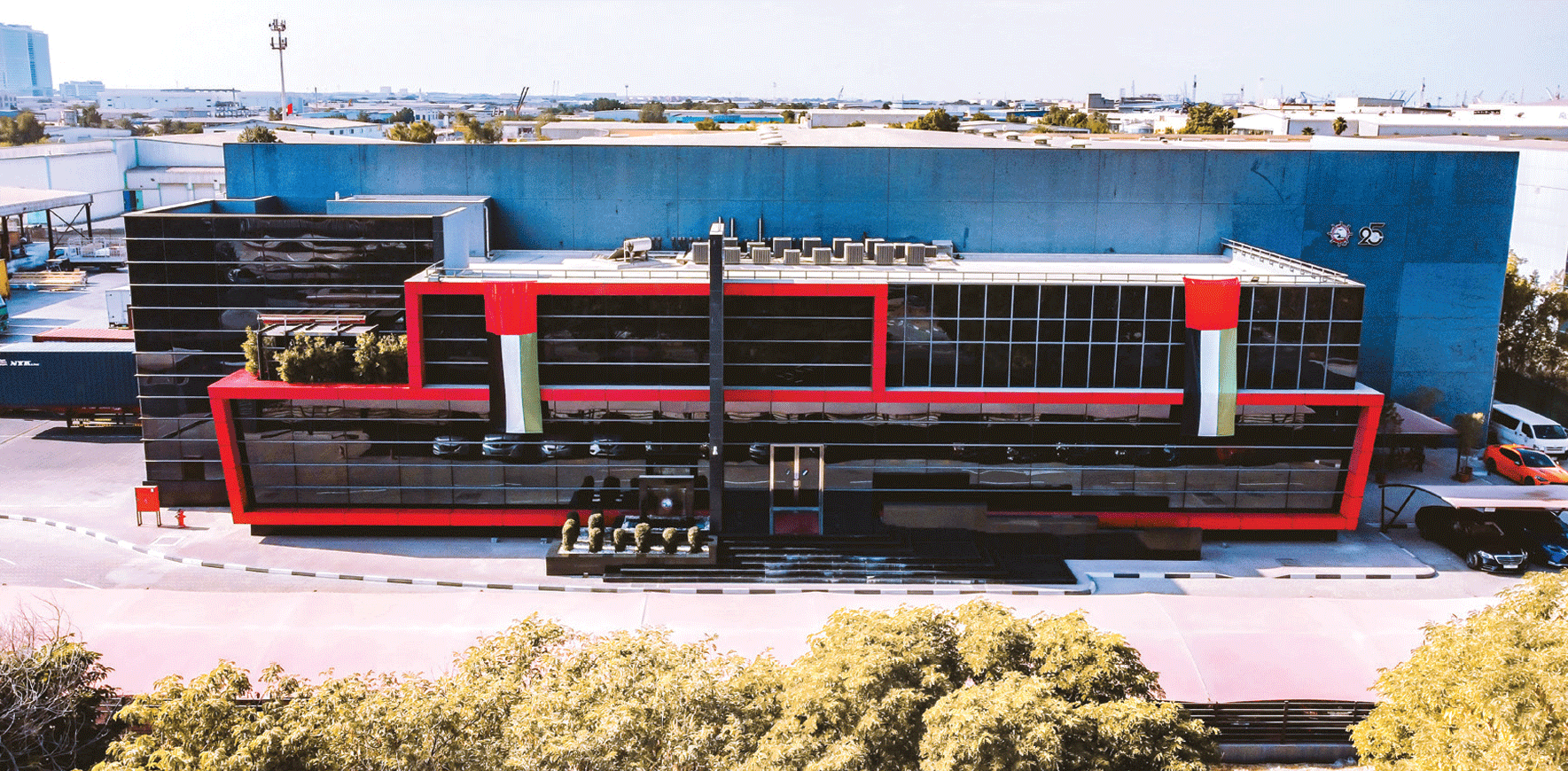
 Every human regardless of gender or genealogy is born with the inherent ability to become a leader, this ability is the leadership nature. Although everyone has the leadership spirit, no one will ever truly become a leader until they develop the spirit of leadership, the ATTITUDE to lead. The purpose of the leadership spirit and spirit of leadership is to serve humanity in any capacity (fulfilling purpose) NOT TO DOMINATE or BOSS anyone. Leaders are ordinary people who accept or are placed in extraordinary circumstances that bring forth their latent potential, producing a character that inspires confidence and trust amongst others.
Every human regardless of gender or genealogy is born with the inherent ability to become a leader, this ability is the leadership nature. Although everyone has the leadership spirit, no one will ever truly become a leader until they develop the spirit of leadership, the ATTITUDE to lead. The purpose of the leadership spirit and spirit of leadership is to serve humanity in any capacity (fulfilling purpose) NOT TO DOMINATE or BOSS anyone. Leaders are ordinary people who accept or are placed in extraordinary circumstances that bring forth their latent potential, producing a character that inspires confidence and trust amongst others. True leaders see people right through and pay close attention to those that are around them. They never forget their identity. In other words, great leaders aren’t using others to build themselves; they are expending themselves to build others. I personally have firsthand experience in working with such leaders for the first time in my entire life and carrier of 25 years in this industry as I write this very inspiring article.
True leaders see people right through and pay close attention to those that are around them. They never forget their identity. In other words, great leaders aren’t using others to build themselves; they are expending themselves to build others. I personally have firsthand experience in working with such leaders for the first time in my entire life and carrier of 25 years in this industry as I write this very inspiring article. From this definition, the requirements for leadership are a purpose, a conviction of that purpose, a vision towards that purpose, passion in pursuing that vision.
From this definition, the requirements for leadership are a purpose, a conviction of that purpose, a vision towards that purpose, passion in pursuing that vision. Intuitive leaders become visionary, they can define and articulate your vision, they recognize other’s achievements, encourage two-way communication, maintain integrity, always lead by example, delegate and empower the team and constantly encourage growth and development. Good, clear, effective communication, engaging and knowing your employees/ team/ staff/ colleagues, setting clear expectations, active listening, allocating/ managing resources, being transparent are also the qualities of a great leader.
Intuitive leaders become visionary, they can define and articulate your vision, they recognize other’s achievements, encourage two-way communication, maintain integrity, always lead by example, delegate and empower the team and constantly encourage growth and development. Good, clear, effective communication, engaging and knowing your employees/ team/ staff/ colleagues, setting clear expectations, active listening, allocating/ managing resources, being transparent are also the qualities of a great leader. Truth is that everybody is born to be a leader, and everyone has the leadership spirit within them.
Truth is that everybody is born to be a leader, and everyone has the leadership spirit within them. Onam, the grand harvest festival of Kerala, is much more than a celebration — it is a cultural phenomenon steeped in history, tradition, and togetherness. Celebrated with immense enthusiasm across the southern state of Kerala, Onam brings people from all walks of life together in a vibrant display of unity and cultural pride. This year, Onam 2024 has been an even more special occasion for CSS Group, marking not only the essence of Kerala’s rich heritage but also key milestones and partnerships in the UAE.
Onam, the grand harvest festival of Kerala, is much more than a celebration — it is a cultural phenomenon steeped in history, tradition, and togetherness. Celebrated with immense enthusiasm across the southern state of Kerala, Onam brings people from all walks of life together in a vibrant display of unity and cultural pride. This year, Onam 2024 has been an even more special occasion for CSS Group, marking not only the essence of Kerala’s rich heritage but also key milestones and partnerships in the UAE.
 Another highlight of the Onam celebrations was the highly anticipated pookkalam competition hosted by the CSS Group. The vibrant and intricate floral arrangements, made entirely of natural flower petals, showcased the creativity and dedication of the employees. The winners of the CSS Group’s 2024 pookkalam competition were RELOCATIONS (1st), CSS AUH (2nd) and CSLC (3rd)
Another highlight of the Onam celebrations was the highly anticipated pookkalam competition hosted by the CSS Group. The vibrant and intricate floral arrangements, made entirely of natural flower petals, showcased the creativity and dedication of the employees. The winners of the CSS Group’s 2024 pookkalam competition were RELOCATIONS (1st), CSS AUH (2nd) and CSLC (3rd)



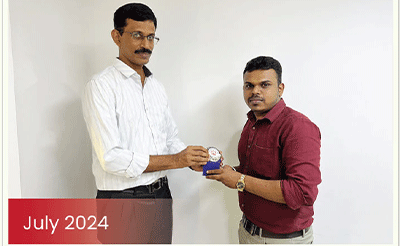



 Fida’s entry into CSS was not conventional. He began as a cricketer, leveraging on his notable reputation as a cricketer from, Kerala, South India. Cricket, which had been a part of his life since childhood, played a pivotal role in shaping his approach to work. His discipline on the field, where he played at various levels including U17, U19, U21, U23, and the prestigious Ranji Trophy, translated into a disciplined work ethic at CSS. His transition from a promising cricketing career to the logistics industry was marked by hard work and a determination to excel in an entirely new field.
Fida’s entry into CSS was not conventional. He began as a cricketer, leveraging on his notable reputation as a cricketer from, Kerala, South India. Cricket, which had been a part of his life since childhood, played a pivotal role in shaping his approach to work. His discipline on the field, where he played at various levels including U17, U19, U21, U23, and the prestigious Ranji Trophy, translated into a disciplined work ethic at CSS. His transition from a promising cricketing career to the logistics industry was marked by hard work and a determination to excel in an entirely new field. Reflecting on his 25 years with CSS, Fida expresses a profound sense of belonging and accomplishment. Fida reflects on his journey with CSS as a long and rewarding experience. He acknowledges that he built his career at the company, which is something he never imagined he would do. Over the years, he made many friends and feels like he is a part of the CSS family.
Reflecting on his 25 years with CSS, Fida expresses a profound sense of belonging and accomplishment. Fida reflects on his journey with CSS as a long and rewarding experience. He acknowledges that he built his career at the company, which is something he never imagined he would do. Over the years, he made many friends and feels like he is a part of the CSS family. Cricket has been more than just a sport for Fida. It has been a guiding force in his life. Fida shares that cricket, being a disciplined and gentlemen’s game, taught him the importance of hard work and discipline. He believes that applying these principles to one’s work will ensure that everything else falls into place. This philosophy has undoubtedly influenced his approach to work at CSS.
Cricket has been more than just a sport for Fida. It has been a guiding force in his life. Fida shares that cricket, being a disciplined and gentlemen’s game, taught him the importance of hard work and discipline. He believes that applying these principles to one’s work will ensure that everything else falls into place. This philosophy has undoubtedly influenced his approach to work at CSS.
 Six franchise owners have been selected through a competitive tender process. Notable personalities and entrepreneurs such as T S Kaladharan of Consolidated Shipping Services India Pvt Ltd, filmmaker Priyadarshan and, Sohan Roy of Aries Group are among the franchise owners. The teams will be assembled through an auction of registered players under KCA, ensuring a fair and competitive selection process.
Six franchise owners have been selected through a competitive tender process. Notable personalities and entrepreneurs such as T S Kaladharan of Consolidated Shipping Services India Pvt Ltd, filmmaker Priyadarshan and, Sohan Roy of Aries Group are among the franchise owners. The teams will be assembled through an auction of registered players under KCA, ensuring a fair and competitive selection process. Understanding the principal causes of Employee Burnout is of paramount importance, particularly for individuals in leadership and prime positions. Identifying and resolving these factors is instrumental in fostering a more wholesome work environment:
Understanding the principal causes of Employee Burnout is of paramount importance, particularly for individuals in leadership and prime positions. Identifying and resolving these factors is instrumental in fostering a more wholesome work environment: 2. Lack of Control: Managing conflicts, particularly when navigating the input of multiple supervisors, can create a sense of uncertainty and stress, impacting overall well-being.
2. Lack of Control: Managing conflicts, particularly when navigating the input of multiple supervisors, can create a sense of uncertainty and stress, impacting overall well-being.

 Over the past decade, the international trade landscape has undergone substantial changes driven by natural disasters, health pandemics, geopolitical tensions, economic shifts, and technological advancements. Despite these challenges, the logistics industry has demonstrated remarkable growth and resilience, with its valuation rising from $5.8 trillion in 2018 to $10.41 trillion by 2023, and projections suggest it could surpass $18 trillion by 2030. However, the latest report from the United Nations Conference on Trade and Development (UNCTAD) underscores persistent challenges, including geopolitical tensions, rising shipping costs, and high debt levels, which could affect global trade.
Over the past decade, the international trade landscape has undergone substantial changes driven by natural disasters, health pandemics, geopolitical tensions, economic shifts, and technological advancements. Despite these challenges, the logistics industry has demonstrated remarkable growth and resilience, with its valuation rising from $5.8 trillion in 2018 to $10.41 trillion by 2023, and projections suggest it could surpass $18 trillion by 2030. However, the latest report from the United Nations Conference on Trade and Development (UNCTAD) underscores persistent challenges, including geopolitical tensions, rising shipping costs, and high debt levels, which could affect global trade. 3. Bridging the Talent Gap
3. Bridging the Talent Gap
 5. Global Trade Dynamics
5. Global Trade Dynamics Conclusion: Balancing Growth and Challenges
Conclusion: Balancing Growth and Challenges